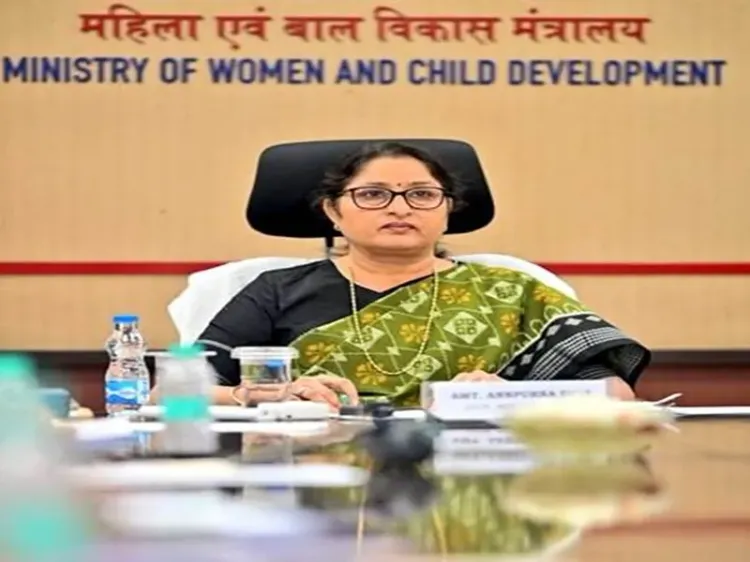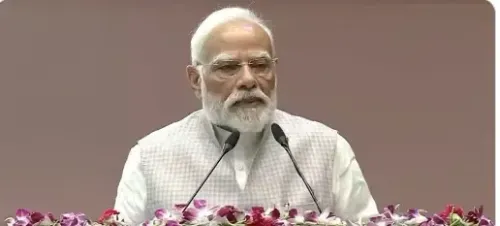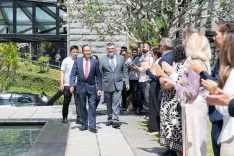India Pioneering the Shift to Women-Led Development: Annapurna Devi

New Delhi, Jan 11 (NationPress) As India took the lead in the G20 presidency, there has been a pivotal shift in the global discourse from ‘women's development’ to ‘women-led development’. This progressive vision has received robust backing from Brazil, which will assume the presidency in 2024, remarked Women and Child Development Minister Annapurna Devi on Saturday.
She made these comments while inaugurating a three-day Chintan Shivir in Udaipur, Rajasthan, aimed at addressing the challenges in enhancing the development and welfare of both women and children.
During her special address, Savitri Thakur, Minister of State for Women and Child Development, underscored the ongoing initiatives of the Ministry.
She stated that our initiatives to empower women and promote child welfare are yielding positive outcomes. Through collaborative discussions and shared insights at this Shivir, we aim to expand successful practices for greater impact, she explained.
The keynote address was presented by Bhajan Lal Sharma, Chief Minister of Rajasthan, who expressed his pride in hosting this transformative event from January 10-12.
He conveyed that Rajasthan is privileged to host the Chintan Shivir, a forum for meaningful dialogue and collaboration. “We are dedicated to supporting national initiatives and ensuring the welfare of women and children in our state,” he stated.
This three-day gathering brought together key stakeholders, including dignitaries and senior officials from both Central and State Governments, to lay the groundwork for impactful policy decisions and effective execution of welfare programs, aiming for a brighter future for the nation's most vulnerable groups, according to an official statement.
The sessions at the event focused on the Ministry's significant initiatives, including Mission Vatsalya, Mission Shakti, and Mission Saksham Anganwadi and Poshan 2.0.
The event showcased presentations of best practices from various States and Union Territories, concentrating on successful initiatives that tackle issues faced by women and children, along with discussions on scaling these practices across additional districts.
The Shivir also facilitated open discussions with representatives from States and Union Territories, providing a platform for addressing challenges, sharing ideas, and engaging in collaborative problem-solving to ensure that ongoing programs effectively meet the needs of the targeted populations.









